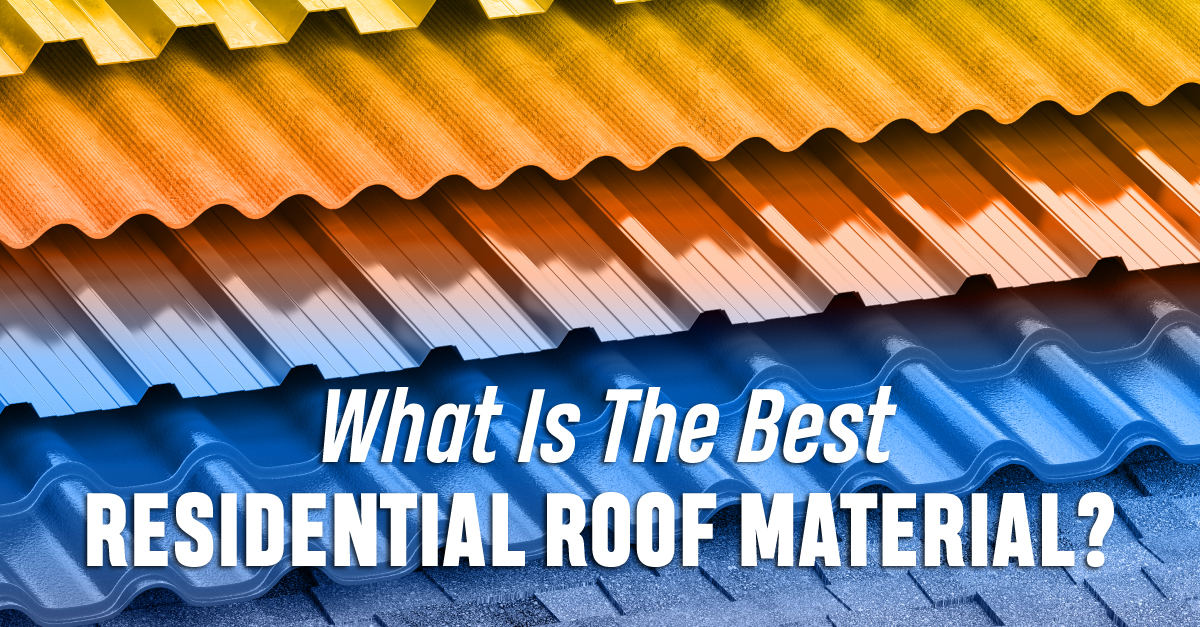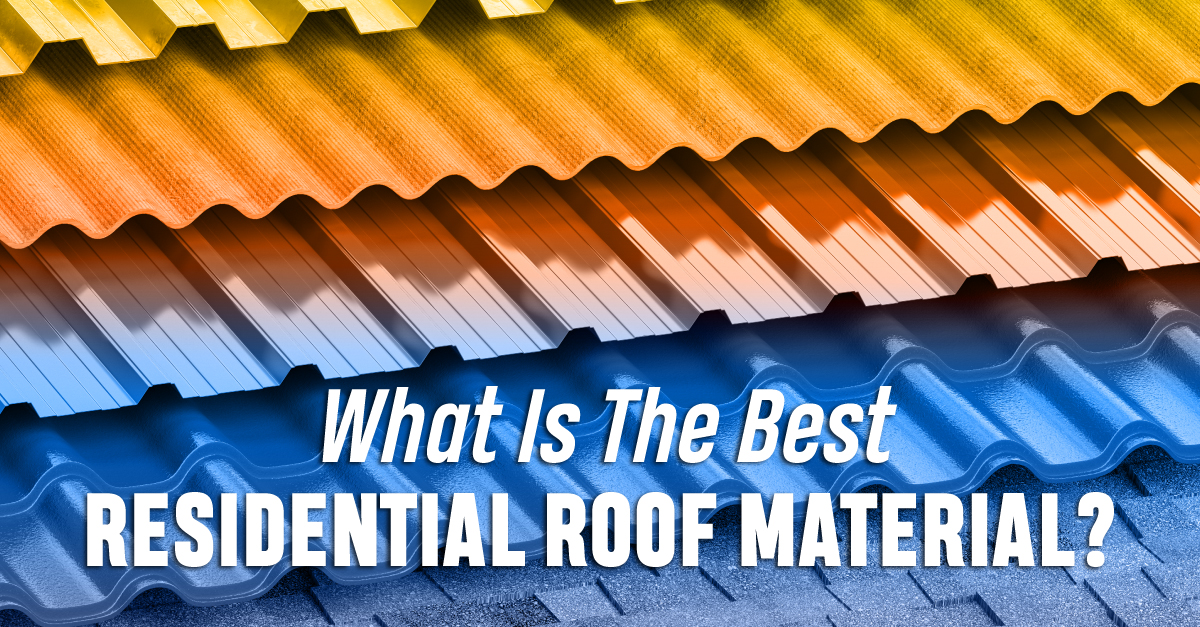
Choosing the right type of roof for a new house or a complete roof replacement can be quite difficult. There are so many options available on the market, but which one is the best for you?
Asphalt Shingles
Asphalt shingles are the most common residential roofing material in the U.S. They are readily available, relatively inexpensive up-front, and easy to install. Tearing down a shingle roof can be quick, making replacement easy and affordable. Depending on the materials and construction, asphalt shingle roofs last up to 20 years or more. They are available in a wide range of colors, patterns, and styles, so you can find something to match your home’s exterior and increase curb appeal.
The main disadvantage is they can crack more easily upon impact and when exposed to extreme temperature fluctuations. They’re also more vulnerable to wind damage and can be susceptible to mildew and moss issues.
Metal
Metal roofs are becoming increasingly popular among homeowners. They’re known for their toughness and can last between 40 to 70 years. They’re extremely lightweight, low-maintenance, and environmentally friendly.
They’re non-combustible and perform well against strong winds, moisture, and pesky insects. Through integrated thermal breaks and reflective coatings, metal roofs can reduce your home’s energy costs by up to 25% or more.
Metal roofs are more expensive than most other roofing materials. They can be noisy during heavy rains or hail storms and are prone to expansion and contraction. The installation process for metal roofs can be longer.
Tiles
Whether made of molded concrete, fired clay, or slate, a tile roof will add a lot of character in your home. They come in many shapes: flat, curved, interlocking, fluted, and in many styles.
Quality tiles should last 50 to 100 years or more. Roof tiles are generally durable, fireproofed, and resistant to fading. They are low-maintenance, can withstand strong gushes of wind, and are impervious to rot and insect damage.
Tile roofing is a great option for areas exposed to hot weather. They are energy efficient because they’re designed to reflect light and their heavy thermal mass helps provide insulation during colder temperatures, helping you cut down on heating and cooling bills.
Tile roofs tend to be expensive and are heavy and difficult to install. What’s more, they are fragile and unsuitable for climates with fluctuating weather.
Wood/Cedar Shake
A traditional cedar shake roof is made from split logs. These roofs have a very distinctive and natural look because every shingle is of slightly varying thickness and length. Cedar shake roofs have been around since the colonial times for many reasons.
They’re reliable in any climate and can withstand harsh weather conditions. Cedar is a natural insulator and can cut down on energy expenses. With proper maintenance, a wood shake shingle roof will have a useful life of 20 to 40 years.
While fire-resistance is a concern, cedar shake roofs usually have a fire-resistance coating for safety. Wood shake roofing is about double the cost of popular roofing materials such as asphalt shingles. They also require a great deal of professional maintenance to prevent the growth of algae and moss, insect infiltration, and to keep it from deteriorating too quickly.
Flat Roof
Flat roofs are becoming increasingly popular among homeowners because of their modern aesthetics and unique look. PVC, single-ply TPO, and torch down are some of the most common types of flat roofing materials.
Flat roofs are affordable and easier to install because they need fewer materials, come in large sheets, and there is no pitch to the roof. They also offer extra space at the top, which you can use for solar panels or air conditioning units or you can have a rooftop deck or patio.
The materials offer excellent protection against UV rays, water, insects, and inclement weather. Some of the membranes can reflect UV rays to keep the home cooler; others can absorb heat to lower heating bills.
Flat roof materials generally have a lifespan of 15 to 20 years. Membranes can be easily punctured by falling tree debris, foot traffic, or storm damage. They require more maintenance because water will collect over time, especially when the weather is rainy.
When it’s time for a new roof, look to Guardian Homes. We specialize in residential roof repairs, replacement, and maintenance. Our roofing technicians are uniquely qualified to give you accurate information about every type of roof material to help you choose the best option and style for your home. Get in touch with us for an appointment and/or estimate.

